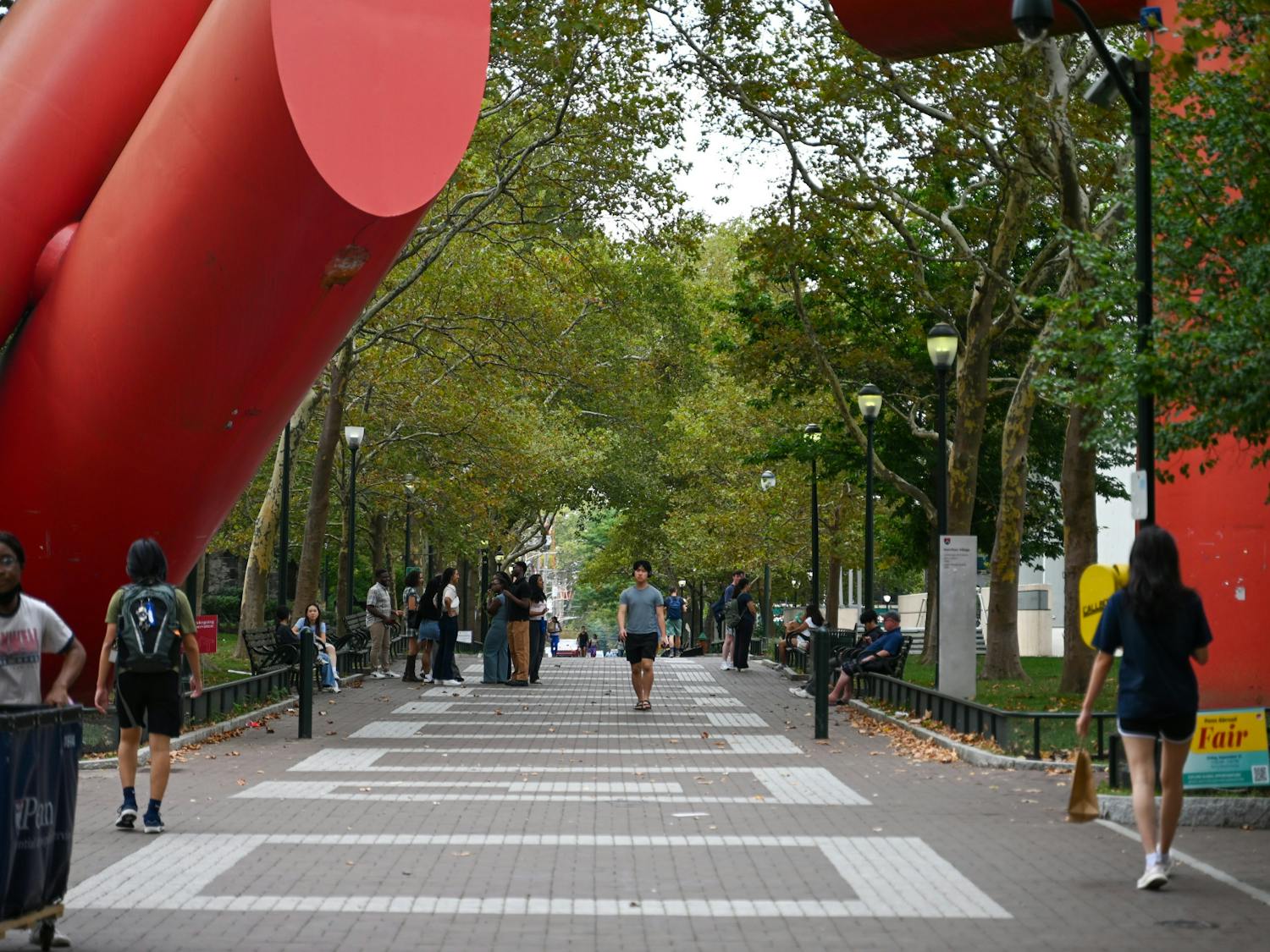A group of Penn graduate students made their unionization movement public on Thursday night, with an online statement.
The group is called GET-UP, an acronym for “Graduate Employees Together — University of Pennsylvania.” The group has over 1,000 members, and over 200 attended Thursday night’s meeting that resulted in the unanimous vote to publicize the statement, GET-UP member and Biomedical Graduate Studies student Joe Jordan said.
Over the summer, the National Labor Relations Board overturned a previous decision that disallowed graduate students to unionize, which cleared the way for groups like GET-UP to form at universities.
To Jordan, going public means that GET-UP has “announced [its] campaign to the administration and to the broader Penn community.” But he said that the actual implications of bringing the movement to the masses remain to be seen.
“I’m not totally sure what it means,” GET-UP member and history graduate student Emma Teitelman said. She added that, to her, this seems like “just another step” for this organization that has “been public for a long time.”
GET-UP needs 30 percent support from the graduate student body in order to bring in the NLRB to oversee an election on whether or not to unionize. If a majority of students vote in favor of the movement, then the union will be established.
But some students worried that Penn’s Board of Trustees could stand in the way of the progress, Biomedical Graduate Studies student and GET-UP member Olivia Harding said. She added that although it is illegal for the board to use intimidation tactics to discourage unionizing, she feared other “subversive things they can put forward” to hinder the progress, such as hiring anti-union lawyers.
Harding said that GET-UP’s next step is to circulate a petition to publicly and officially ask the administration to remain neutral on the matter so that the NLRB and Penn’s graduate student community can settle the issue without external intervention.
GET-UP enlisted the American Federation of Teachers as an affiliate, the group wrote in its statement. Teitelman explained that the AFT has been a source of advice and support for the movement. The AFT represents 11,500 teachers, nurses, counselors and support staff in Philadelphia and currently support the graduate student unionization efforts at Cornell University, Princeton University and the University of Chicago.
“Without our labor, the university simply could not teach all of its undergraduates or run its laboratories,” GET-UP’s statement reads.
“It is not an isolated issue that drives our call for unionization; rather, it is the need for political representation to address [issues] collectively,” it adds.
Among the grievances listed by the statement justifying the call for unionization, concerns include the lack of protection by existing procedures to address discrimination, dismissal and sexual harassment, as well as lack of access to benefits like worker’s compensation.
It goes on to say that graduate employees face financial burdens related to housing, health care, childcare and emergencies, “all while being forbidden from seeking outside employment.”
International students, the document adds, face additional challenges related to uncertain tax advice, the high costs of housing and moving and visas which are often tied to funding.
The statement also mentions graduate student with disabilities who “express frustration that resources cater almost exclusively to undergraduates,” and students of color who “struggle to find appropriate mentorship.”
The Daily Pennsylvanian reported in 2004 that the group, which formed in 2001, voted in 2003 on whether or not to unionize. A year and a half later the University had not counted the votes, when the National Labor Relations Board overturned a decision allowing graduate students at private universities to organize.
University spokeswoman at the time, Lori Doyle, told the DP in 2004 that she was “pleased” by the NLRB’s ruling, which she said “recognized what we’ve been saying all along — that graduate students are students, not employees, and that teaching is an essential component of their educational experience.”
Harding said that the organization never fully shut down between then and now, but it gained footing in 2015 when the NLRB voted to reconsider whether graduate teaching assistants at private nonprofit universities have the right to collective bargaining. They eventually voted to overturn the 2004 decision last August, despite Penn and eight other universities signing an amicus brief encouraging them not to.
The GET-UP statement invites fellow students to sign authorization cards in the coming weeks asking the NLRB to vote.
“Right now, if something bad happens, [our] strongest weapon is the word, ‘please,’” Jordan said. “We want a stronger say than that.”
“Our graduate students are the world’s next generation of scholars, and we view them as our students, mentees and future colleagues, rather than our employees. We believe strongly that we can best support our graduate students and their individual educational experiences through our well established means of ongoing consultation and collaboration, without the intervention of a union,” University spokesperson Stephen MacCarthy said.









